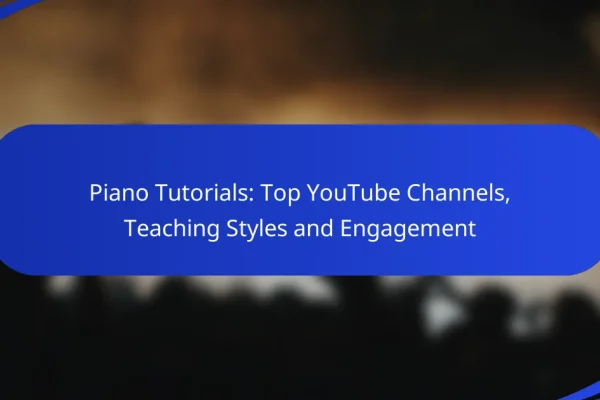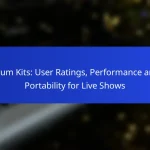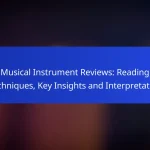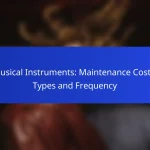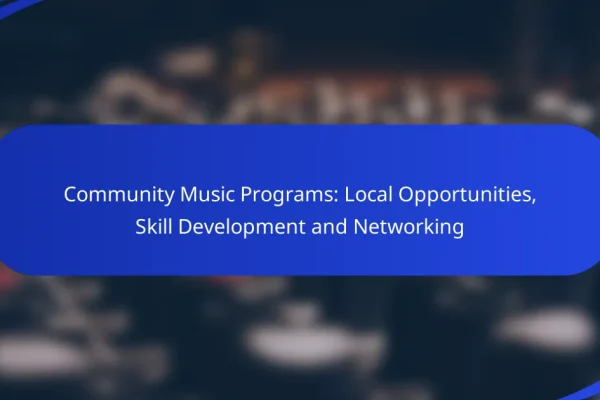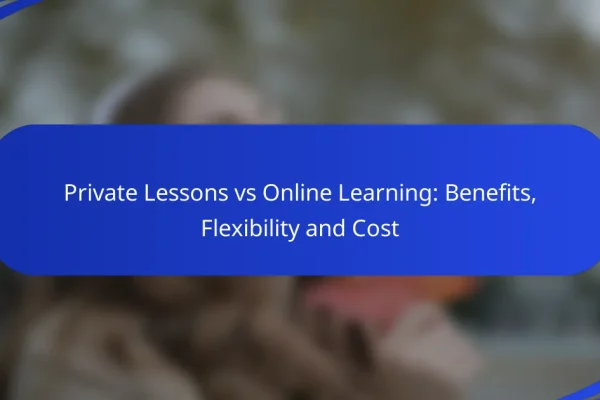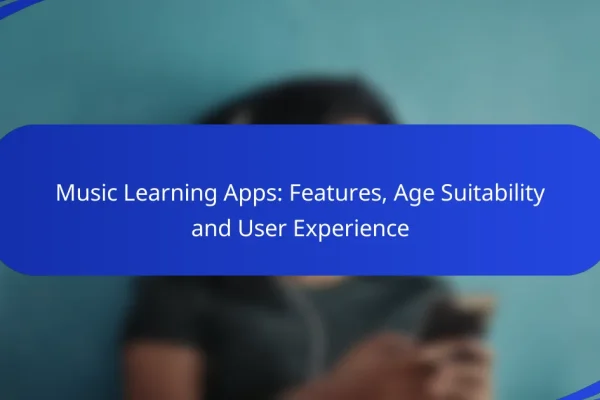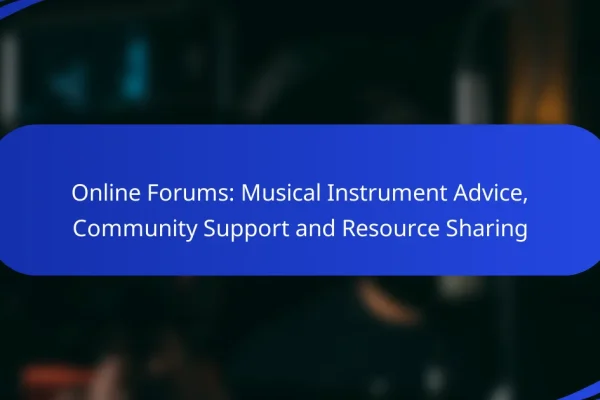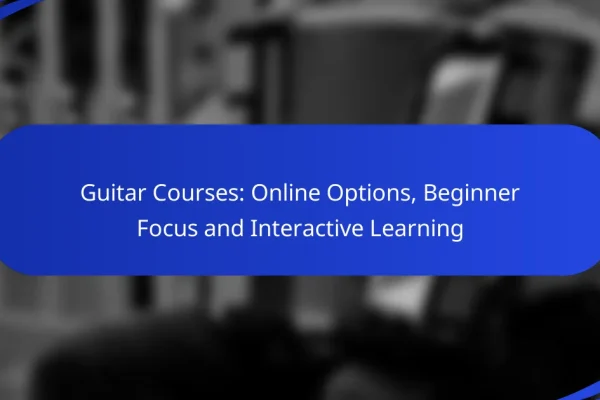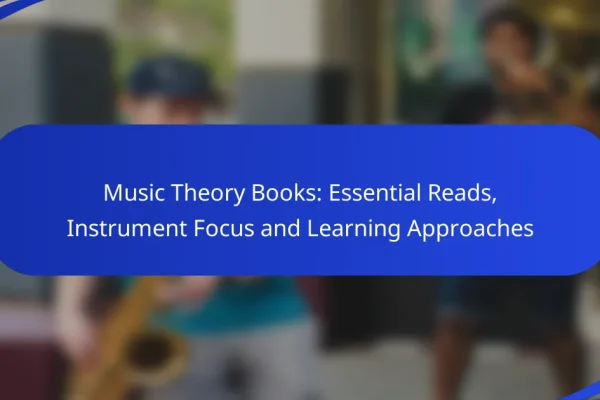What are the best musical instruments for beginners?
The best musical instruments for beginners are those that are relatively easy to learn, affordable, and versatile. Instruments like the guitar, piano, ukulele, drums, and violin offer a good balance of accessibility and musicality, making them ideal choices for new players.
Guitar for beginners
The guitar is a popular choice for beginners due to its wide range of music styles and relatively simple chord structures. Acoustic guitars are often recommended for their ease of use and lower cost, typically ranging from $100 to $300 for a decent starter model.
When starting, focus on learning basic chords and strumming patterns. Many online resources and apps provide structured lessons, making it easier to progress at your own pace. Avoid common pitfalls like neglecting finger positioning, which can hinder your playing.
Piano for beginners
The piano is an excellent instrument for beginners because it visually represents music theory and note relationships. Digital pianos or keyboards can be found for around $200 to $500, making them accessible for most budgets.
Begin with simple scales and basic songs to familiarize yourself with the keys. Consider using online tutorials or piano apps that offer interactive learning experiences. A common mistake is skipping practice; regular, short sessions are more effective than infrequent, long ones.
Ukulele for beginners
The ukulele is a fun and approachable instrument, perfect for beginners. Its small size and nylon strings make it easy on the fingers, and starter models typically cost between $50 and $150.
Start by learning a few basic chords and simple strumming patterns. The ukulele is great for playing popular songs quickly, which can boost your motivation. Be cautious of overcomplicating your practice; focus on mastering a few chords before moving on to more complex techniques.
Drums for beginners
Drums can be a fantastic outlet for beginners who enjoy rhythm and energy in music. Entry-level drum kits can range from $300 to $800, while electronic kits may offer more versatility for practice without disturbing others.
Begin with basic drumming patterns and focus on developing a steady tempo. Online lessons and instructional videos can help you learn techniques effectively. Avoid the mistake of neglecting coordination; practice each limb separately before combining them.
Violin for beginners
The violin is a beautiful instrument that offers a rich musical experience, but it can be challenging for beginners. A decent student violin typically costs between $200 and $600, depending on quality and brand.
Start by learning proper bowing techniques and finger placement on the strings. Consider taking lessons from a qualified instructor to ensure you develop good habits early on. A common pitfall is not practicing regularly; consistent practice is key to mastering the violin’s intricacies.
How to choose the right musical instrument?
Choosing the right musical instrument involves considering your skill level, musical interests, budget, and the types of instruments available. By evaluating these factors, you can select an instrument that enhances your learning experience and enjoyment.
Consider skill level
Your skill level is crucial in selecting an instrument. Beginners might benefit from instruments that are easier to learn, such as the ukulele or keyboard, while more advanced players may want to explore complex options like the violin or saxophone. Assess whether you want to start with a simpler instrument or challenge yourself from the beginning.
It’s also worth noting that some instruments have a steeper learning curve than others. For example, brass instruments often require more breath control and technique compared to string instruments. Understanding your current abilities will help you make a more informed choice.
Assess musical interests
Your musical interests should guide your instrument selection. Consider the genres you enjoy, whether it’s classical, rock, jazz, or folk music. If you love rock, electric guitars or drums might be appealing, while classical enthusiasts may prefer piano or cello.
Think about the type of music you want to create or play. If you’re drawn to ensemble performances, instruments like the flute or trumpet could be suitable. For solo performances, consider instruments that allow for more expressive playing, such as the guitar or piano.
Evaluate budget
Your budget plays a significant role in choosing an instrument. Prices can vary widely; beginner instruments may range from a few hundred to several thousand dollars depending on quality and brand. Set a realistic budget that includes not just the instrument, but also accessories like cases, tuners, and maintenance supplies.
Be cautious of very low-priced instruments, as they may compromise quality and hinder your learning. Look for reputable brands and consider purchasing used instruments to save money while still getting a quality product.
Research instrument types
Researching different types of instruments is essential to making an informed decision. Each instrument has unique characteristics, sound qualities, and playing techniques. Familiarize yourself with the main categories: string, woodwind, brass, percussion, and keyboard instruments.
Try visiting local music stores or attending instrument demonstrations to get a feel for different options. Online resources, such as videos and forums, can also provide insights into the pros and cons of various instruments. This hands-on experience will help you determine which instrument resonates with you the most.
Where to find learning resources for musical instruments?
Learning resources for musical instruments can be found in various formats, including online platforms, local institutions, and printed materials. Each option offers unique benefits, so consider your learning style and goals when choosing the best resources.
Online courses and tutorials
Online courses and tutorials provide flexible learning opportunities for musicians at all levels. Platforms like Coursera, Udemy, and Skillshare offer structured lessons on various instruments, often featuring video demonstrations and interactive assignments.
When selecting an online course, look for user reviews and course previews to ensure quality. Many platforms offer free trials or low-cost options, making it easy to explore different styles and instructors before committing.
Local music schools
Local music schools offer personalized instruction and a community environment for learning musical instruments. These schools typically provide one-on-one lessons, group classes, and performance opportunities, which can enhance your learning experience.
To find a music school near you, search online directories or ask for recommendations from local musicians. Consider visiting the school to observe classes and meet instructors before enrolling to ensure it aligns with your learning preferences.
YouTube channels for instrument learning
YouTube is a treasure trove of free instructional content for learning musical instruments. Channels like JustinGuitar, Piano Video Lessons, and The Guitar Lesson offer a wide range of tutorials, from beginner basics to advanced techniques.
When using YouTube for learning, create a playlist of videos that cover your specific instrument and skill level. Engage with the community by asking questions in the comments, which can further enhance your understanding.
Books and instructional materials
Books and instructional materials provide in-depth knowledge and structured learning paths for musicians. Look for method books specific to your instrument, which often include exercises, theory, and practice tips.
Consider supplementing your learning with instructional DVDs or e-books that offer visual and auditory guidance. Libraries and bookstores typically have a dedicated section for music education, making it easy to find resources tailored to your needs.
What are the benefits of learning a musical instrument?
Learning a musical instrument offers numerous benefits, including enhanced cognitive abilities and improved emotional expression. Engaging with music can stimulate brain development and provide a creative outlet for feelings.
Cognitive development
Playing a musical instrument enhances cognitive skills such as memory, attention, and problem-solving. Research indicates that musicians often perform better in tasks requiring these abilities compared to non-musicians.
Learning to read music and understand rhythm can improve mathematical skills as well. For instance, children who study music may show better performance in math tests, as both disciplines share similar patterns and structures.
Emotional expression
Music serves as a powerful medium for emotional expression, allowing individuals to convey feelings that might be difficult to articulate verbally. Playing an instrument can help manage stress and anxiety, providing a therapeutic outlet.
For example, many musicians report feeling a sense of relief and joy while playing, which can enhance overall well-being. Additionally, participating in group music activities fosters social connections, further supporting emotional health.
